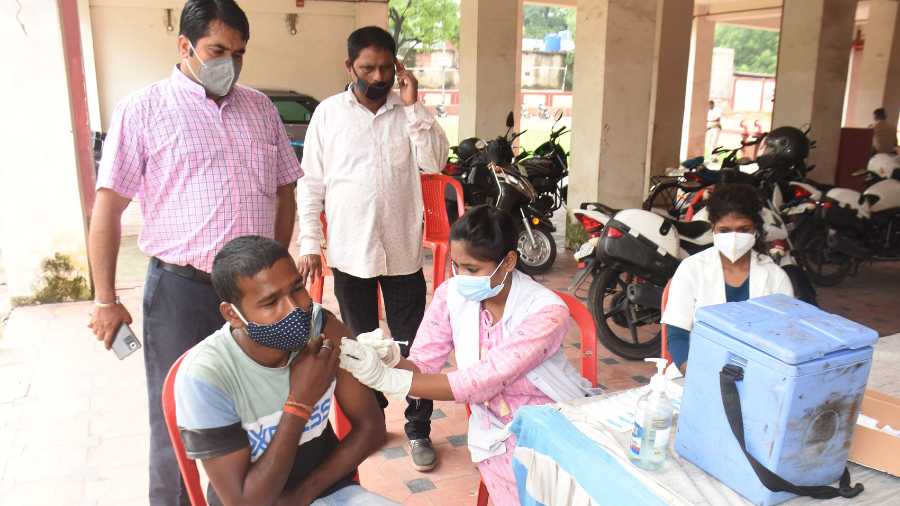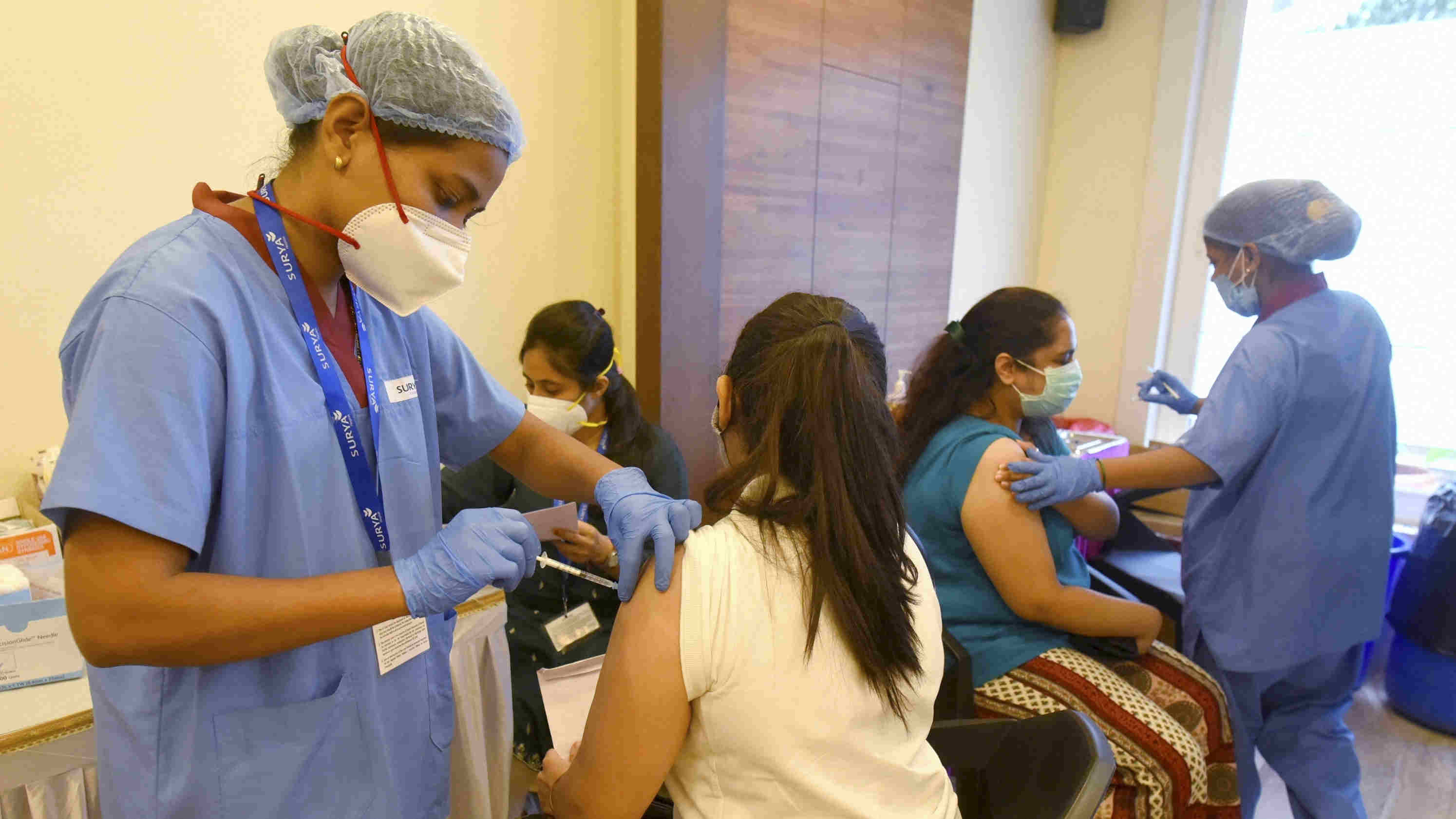A shroud of secrecy over the closed-door discussions through which health officials and technical experts shaped India’s Covid-19 vaccination policy remains intact.
The Central Information Commission, disposing of a set of petitions seeking information on the vaccination policy, has said the Union health ministry has provided all relevant information to citizens.
Petitioner Saurav Das, a Right to Information activist and an investigative journalist, had sought from the Union health ministry, among other details, minutes of meetings and file notings of the National Expert Group of Vaccination Administration for Covid-19 and the National Technical Advisory Group on Immunisation, two key bodies that have guided the vaccination policy.
India’s Covid-19 vaccination campaign is currently proceeding at a pace significantly lower than what it needs — less than six million doses administered daily, instead of an ideal around nine million daily — mainly because of limited supplies.
Sections of health experts say the current limited supplies are the likely outcome of decisions taken by either NEGVAC or other arms of the government presumably after technical discussions weighing pros and cons of multiple options.
Das, whose petitions had sought information on those technical discussions, had appealed to the commission after the health ministry informed him that members of NEGVAC have to sign non-disclosure agreements. The ministry also said other information is exempt under Section 8(1)(a) of the RTI Act as it would prejudicially affect India’s strategic, scientific or economic interests.
The ministry also told Das it has consistently made available information relating to NEGVAC’s decisions and the vaccination policy through the Press Information Bureau, media conferences and minutes of NTAGI meetings are available on its website.
The commission in its final adjudication on Monday said it finds the denial of information invoking such exemptions under Section 8(1)(a) without proper justification “untenable,” but said is it “convinced” that the respondent (the health ministry) has provided relevant information.
“The respondent ought to and, as facts indicate, has been updating all relevant information which can be of use to citizens and serve the interests of all sections in the society,” the commission said.
Das and another RTI activist Venkatesh Nayak, not associated with Das’s petition, said they are disappointed.
“Everyone knows the decisions taken — but the minutes of meetings and file notings could have provided insights into the thinking, discussions, debates, if any, leading up to those decisions,” Das said.
Nayak said the RTI Act requires the government to provide all relevant information about decisions that impact the public. “The government is obliged to provide information on details of the decision-making process too.”












